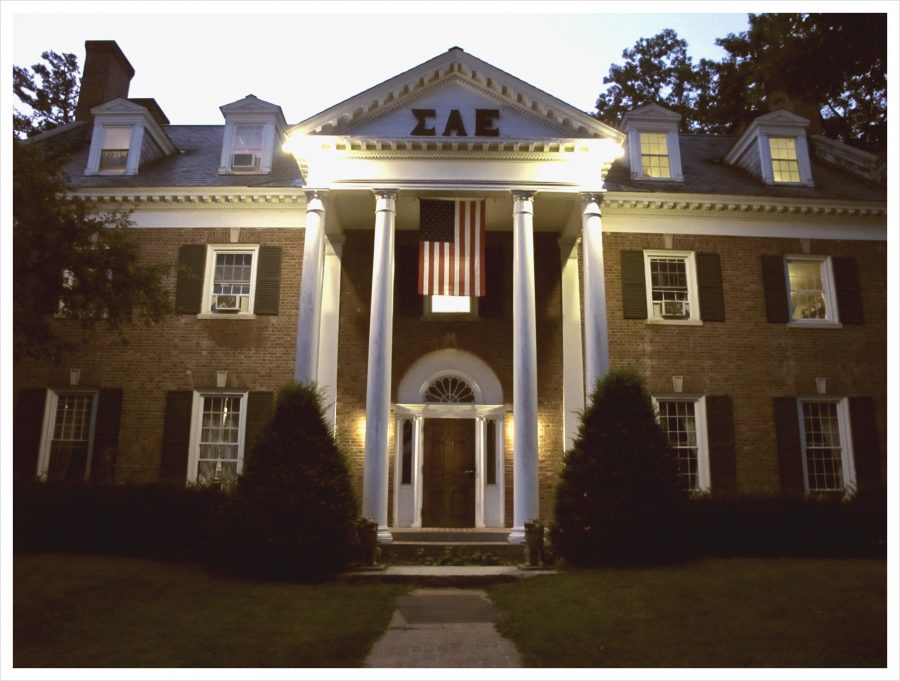With the recent arrests of Loyola students at popular drinking establishments Craig’s and Murphy’s, students are now faced with three social options each weekend.
They break down like this: 1) They could just obey the law and wait until they are 21 years of age (but who does that, right?). 2) Adapt to the situation and play it safe when venturing to bars on the weekends, or of course 3) Continue their drunken escapades at the infamous fraternities of Johns Hopkins University. Assuming that 90 percent of you are ignoring option one because of social pressures and there will always be some minor activity at bars, I would like to evaluate option three in particular.
The archetypal fraternity party is chock full of kegs, scantily clad women, drinking games, blurred vision, public intoxication and basically any other John Bellushi stereotype that persists in the college-goers mentality. The Johns Hopkins frats, though perhaps not living up to Animal House expectations, do receive fairly positive reviews from both Hopkins and Loyola students.
The fraternity scene contrasts with the bars in that bars are at least decently organized drinking establishments where there are stricter rules on behavior and conduct. Meanwhile in the fraternity scene, the drinking is usually governed by an organized hierarchy of upperclassmen who have pledged their honor to the mission and morals of the fraternity. Yes, it is as good as it sounds. However, with Loyola students visiting the various schools around them, students are more at risk for sexual and financial solicitations at the hands of Hopkins fraternity members and thieves on the streets of Baltimore. The main issue is not only maintaining crowd control at frats, but also the idea that fraternity members can create and abide by their own laws.
Now, I see two effective solutions the Loyola administration could try. They could find a way to totally eradicate the drinking scene for all of eternity and risk losing prospects attempting to gain the full college experience and a great education. Or, and hopefully in the near future, they could establish some form of Greek life on our campus. Yes, I am calling for the establishment of a Loyola fraternity. Now, let me explain…
First off, a Loyola fraternity would be a truly remarkable scene for Loyola to raise up. If houses become recognized as fraternities, we would recognize mutual benefits for both parties. Fraternity leaders finally will be given the power that they deserve to jump-start and create a lasting legacy that the future of Loyola can build upon. On the other side, the University can use this presence to its advantage, as a means of drawing in prospects interested in Greek life, as well as being able to control how much power the fraternities would have. They could use fraternities as a means to direct students to mandatory community service as one of the pledges to the house. Let the kids run wild, and use crowd control when necessary.
Another majorly positive factor that could be of attraction to the University would be the fact that they could also use Loyola policemen as a means of crowd control for the newly created fraternities. We all are well aware of how dangerous an out-of-control party can become in just a few moments (cue the Project X visions). Theoretically, now that Loyola’s fraternity is on or near campus, the Loyola police force will have an easier time utilizing crowd control when necessary. By placing the battle on their home turf, officers would have the upper hand if any sort of shenanigans spiraled out of control. Point university.
At the very least, Loyola should conduct a trial run for a fraternity. Even in the unlikely event that the net consequences of Loyola fraternities are negative, then no one could say we didn’t try. And if declaring a free day for fraternities is too difficult to stomach, they don’t have to be turned loose laissez-faire.
Establish a fraternity exclusively for seniors or for people of the drinking age. Found a fraternity where you must maintain a specific GPA and balance co-curricular activities along with it. Create rules that focus more on giving back to the community than letting mayhem ensue (well, let a little bit flourish, for our sakes). Why not found a fraternity even for just a year, maybe even a semester, and see how things play out? A trial to see if the fraternity can withstand the test of being on campus. I am not saying that this has to be the new social scene, but Loyola, we ask you but one favor: just think about it, and give it a chance.







































































































